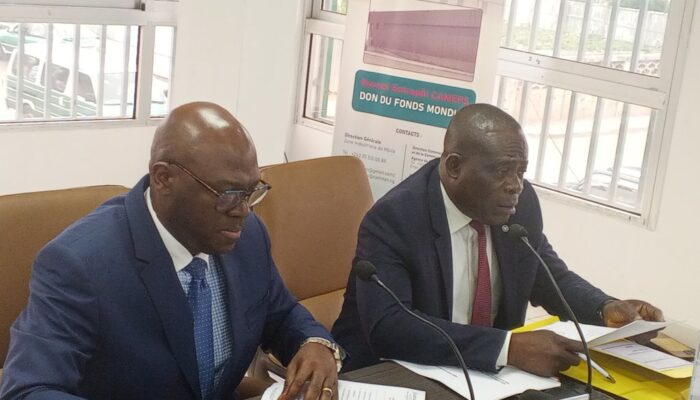Oil barrel prices remain volatile due to the drop in demand in major markets (China, United States) and the persistence of geopolitical tensions. The main players in the national market met on October 9 in Brazzaville to set prices for Congolese crudes, in particular Djeno Blend and Nkossa Blend, for the third quarter of 2024.
Oil companies should therefore be able to draw inspiration from the dynamics of the global market and the government’s vision focused on fairly flexible management of Congolese crude prices. A barrel of Brent is currently trading at $77 on the global market, while Congo’s benchmark crudes were selling in the second quarter at more than $80, compared to $44.9 for Nkossa Butane and $31.5 for Nkossa Propane.

During the three days of discussions, which will involve representatives of the Ministry of Hydrocarbons and leaders of oil companies, participants will attempt to define a better framework for the future of the national market through “balanced” solutions that take into account economic realities and the government’s roadmap. ” We hope that these decisions will provide our companies with the stability they need to continue to prosper and contribute positively to Congolese society ,” said Meddy Lipika-Edre, CEO of Petrocongo, the company organizing this oil price meeting.
In a context of socio-economic fragility against a backdrop of scarcity of public resources, the meeting of oil companies should result in a better price for these benchmark crudes. ” During this quarter, oil markets have experienced significant changes, influenced by various economic, geopolitical and environmental factors. The current context invites us to rethink our strategies and adopt a concerted approach to ensure market stability and balance ,” said the Chief of Staff of the Minister of Hydrocarbons, Pr Macaire Batchi.
The supervisory authority is banking on public-private partnerships to develop unexploited resources, according to Professor Macaire Batchi. The authorities intend to anticipate the effects of the energy transition on the national economy by diversifying resources and preparing local industry to face the challenges posed by the rise of renewable energies and new technologies. These initiatives help create local jobs, promote technology transfer and ensure more efficient exploitation of gas resources.
It is worth mentioning that recently the country signed a memorandum of understanding with Lukoil to strengthen the strategic partnership for the development of oil assets. Another gas project was signed with Wing Wah; the aim of this project is to market several products such as liquefied natural gas, liquefied petroleum gas, dry gas and polypropylene.






